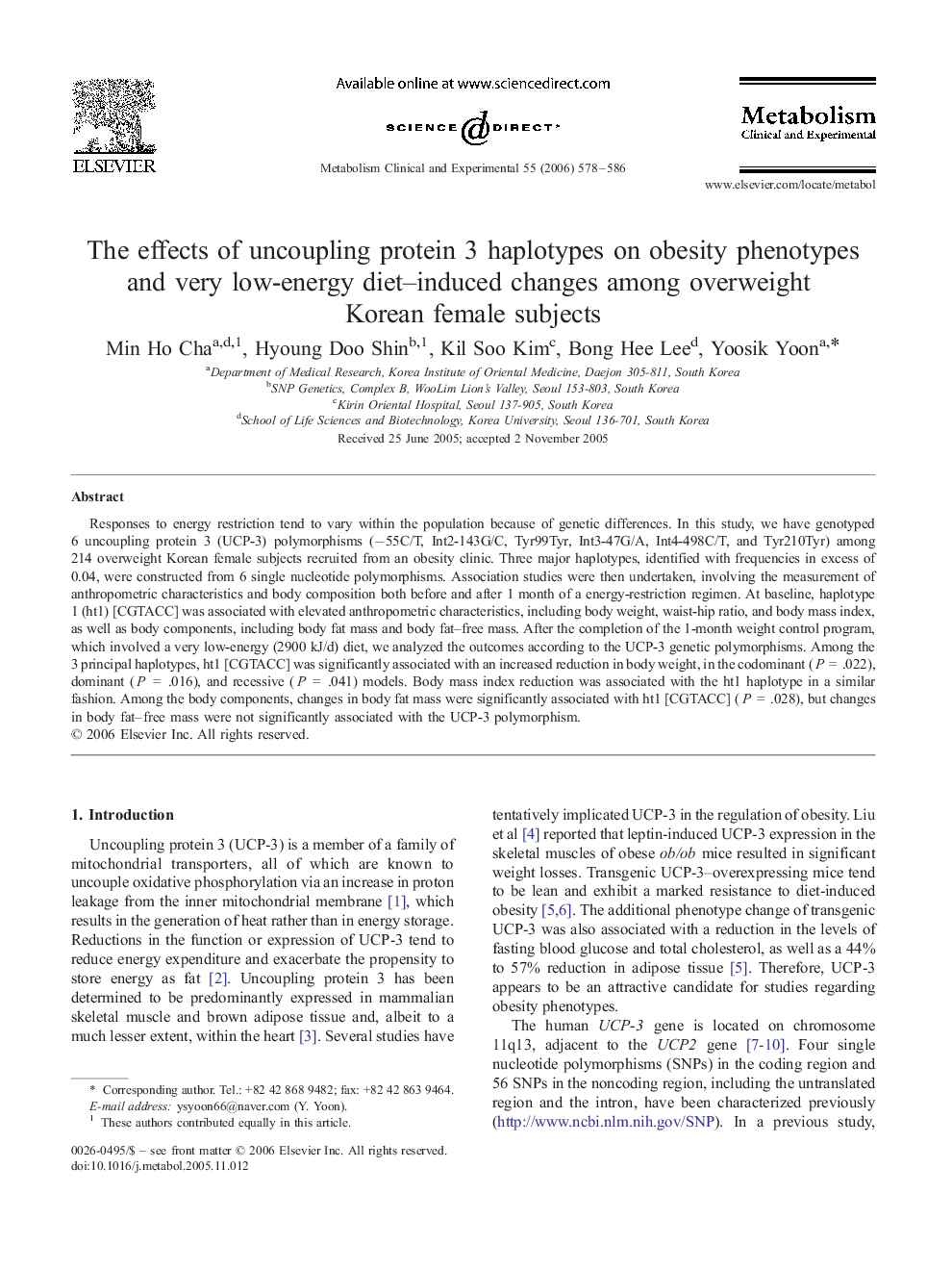| کد مقاله | کد نشریه | سال انتشار | مقاله انگلیسی | نسخه تمام متن |
|---|---|---|---|---|
| 2807166 | 1157151 | 2006 | 9 صفحه PDF | دانلود رایگان |

Responses to energy restriction tend to vary within the population because of genetic differences. In this study, we have genotyped 6 uncoupling protein 3 (UCP-3) polymorphisms (−55C/T, Int2-143G/C, Tyr99Tyr, Int3-47G/A, Int4-498C/T, and Tyr210Tyr) among 214 overweight Korean female subjects recruited from an obesity clinic. Three major haplotypes, identified with frequencies in excess of 0.04, were constructed from 6 single nucleotide polymorphisms. Association studies were then undertaken, involving the measurement of anthropometric characteristics and body composition both before and after 1 month of a energy-restriction regimen. At baseline, haplotype 1 (ht1) [CGTACC] was associated with elevated anthropometric characteristics, including body weight, waist-hip ratio, and body mass index, as well as body components, including body fat mass and body fat–free mass. After the completion of the 1-month weight control program, which involved a very low-energy (2900 kJ/d) diet, we analyzed the outcomes according to the UCP-3 genetic polymorphisms. Among the 3 principal haplotypes, ht1 [CGTACC] was significantly associated with an increased reduction in body weight, in the codominant (P = .022), dominant (P = .016), and recessive (P = .041) models. Body mass index reduction was associated with the ht1 haplotype in a similar fashion. Among the body components, changes in body fat mass were significantly associated with ht1 [CGTACC] (P = .028), but changes in body fat–free mass were not significantly associated with the UCP-3 polymorphism.
Journal: Metabolism - Volume 55, Issue 5, May 2006, Pages 578–586